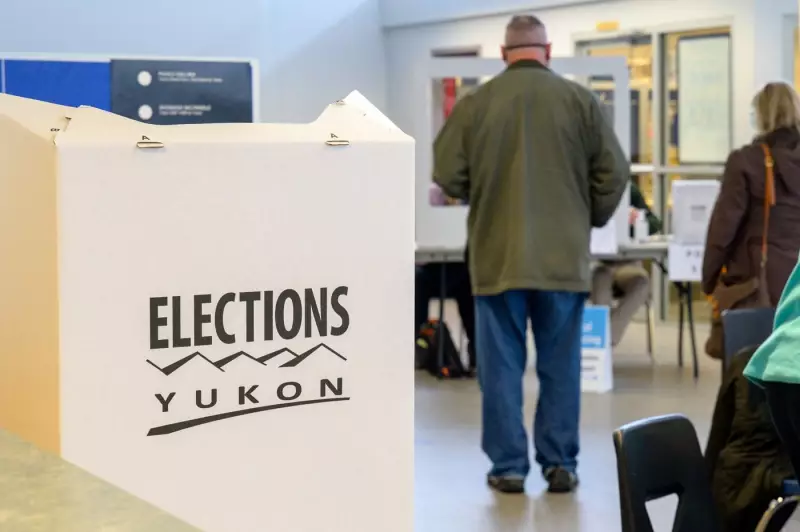
Whitehorse, Yukon – Yukon residents are casting ballots today in what could become one of the most transformative elections in the territory's history, with voters not only choosing their next government but also weighing in on a potentially revolutionary change to how future elections are conducted.
A Dual Decision for Yukoners
As polling stations opened across the vast northern territory, Yukoners faced two critical decisions: selecting their next legislative assembly representatives and participating in a non-binding referendum that could pave the way for electoral reform. The unique dual-ballot system has generated unprecedented interest in Yukon's political process.
The Stakes: Three-Way Race for Power
This election features a fiercely competitive three-way battle between the incumbent Yukon Liberal Party, the Yukon Party, and the Yukon NDP. Current Premier Sandy Silver is seeking a second majority mandate after his Liberals captured 11 seats in the 19-seat legislature during the 2016 election.
Political analysts are watching several key developments:
- The Yukon Party, led by Currie Dixon, aims to return to power after four years in opposition
- The Yukon NDP, under Kate White's leadership, hopes to build on their current three seats
- Several tight races could result in a minority government scenario
- Voter turnout appears strong despite pandemic-related precautions
Electoral Reform: A Potential Game-Changer
The parallel referendum question asks Yukoners whether the territory should adopt a proportional representation system for future elections. While non-binding, a strong endorsement could pressure the next government to implement significant electoral changes.
"This represents a fundamental decision about how democracy functions in Yukon," explained political observer Michael Edwards. "The referendum outcome could reshape territorial politics for generations, moving away from the traditional first-past-the-post system that has dominated Canadian elections."
Campaign Dynamics and Key Issues
The election campaign has focused heavily on economic recovery, healthcare accessibility, housing affordability, and environmental protection. All three major parties have presented distinct visions for Yukon's post-pandemic future, with particular emphasis on:
- Economic diversification and job creation
- Addressing the territory's housing crisis
- Improving healthcare services across rural communities
- Balancing resource development with environmental stewardship
- Managing the ongoing COVID-19 response and recovery
What Happens Next?
Polling stations will remain open until 8 p.m. local time, with results expected throughout the evening. The electoral reform referendum results will be announced simultaneously with the election outcomes, providing Yukoners with immediate insight into both their next government and the potential future of their democratic system.
Regardless of which party forms the next government, the referendum results could trigger a comprehensive review of Yukon's electoral process, positioning the territory as a potential leader in democratic innovation within Canada.





